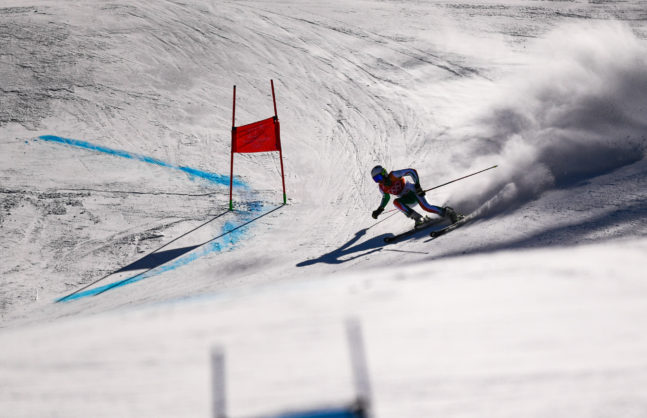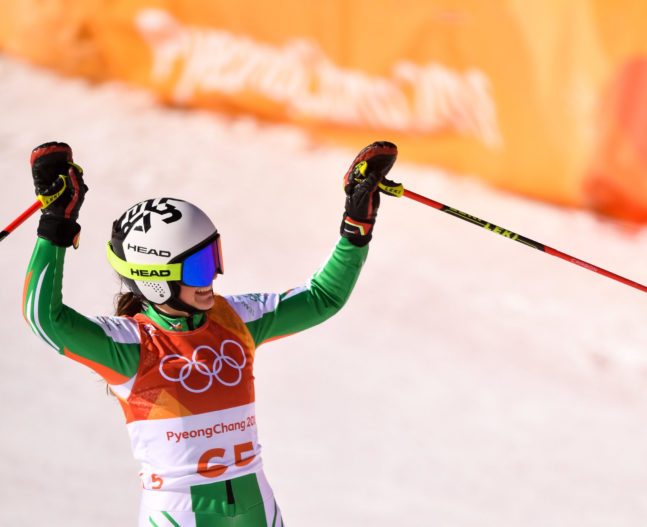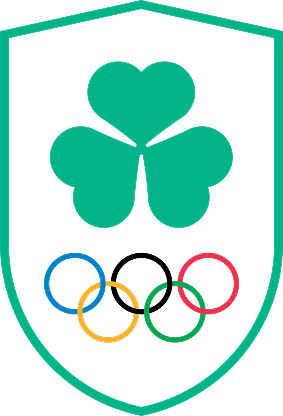What’s seldom is wonderful as Tess Arbez found out in 2020 when she took a year out of competitive skiing to concentrate on her biomedical studies in Geneva.
The talented 24-year-old French-Irish skier was only 20 when she made her Olympic debut in PyeongChang in 2018.
She was only the sixth woman to represent Ireland in the Winter Olympics and produced two top 50 results in slalom and giant slalom.
She had put her law studies on hold to qualify and then resumed them, via distance learning, but then switched to a more demanding course.
“I had started law but I prefer science and medicine and I had to take a full year out of skiing to pass first year as it is a difficult course.
“But that actually made me realise how lucky we were to ski,” she admits of growing up in Vetraz Monthoux, near the Swiss border where she still lives with her family.
With her passion reignited she returned to the slopes in late 2020 which turned out to be perfectly timed, paradoxically due to the global pandemic.
“I was in second year and, with COVID, university was all distance learning and on Zoom which meant I could do the entire ski season. I was maybe the only person who was happy about the Covid situation,” Arbez jokes.
“I was skiing in the morning and catching up with my lessons in the afternoon so it was a really busy year but I think it was worth it.”
It certainly paid off as she finished 38th in giant slalom at this year’s World Championships in Cortina d’Ampezzo (February 2021), her best international result ever.
Getting lots of slope time also helped fuel her love for speed and she could be the first Irish woman to race Olympic Super-G in Beijing next February.
Super-G is super giant-slalom, an event that combines the speed of downhill with the more precise turns of giant slalom.
“Last year I managed to score 73 points in Super-G. To race at the Olympics in speed races you need less than 80 points.
“It was the first time I’ve ever done that and I was really happy because it means I can now race Super-G in some big FIS events. I’ve really improved at speed events.”
Arbez has always favoured giant slalom over the more technical slalom event, even though she did marginally better in the latter in PyeongChang, where she was 50th and 46th respectively.
She reaches speeds of up to 100kph at Super-G and is also enjoying downhill now – the so-called Formula One of alpine disciplines – so the world is her oyster if her progression continues.

With college life returned to normal post-lockdown, her timetable was hectic again this Autumn, taking classes from Monday to Friday and training and racing every weekend, but her university has been very flexible.
After some exams in late November she will now ski full-time from December to the end of Olympic qualification at the least. The college has also offered to defer her finals (in June) to September if needed.
If she is selected for Beijing Arbez is hoping to do even better than on her Olympic debut.
“I hope this time I will be more mature and ski better because the first time it’s really stressful. I was very nervous. You know the whole country is watching you and your parents are at the bottom waiting for you.
“The experience was a little unreal because I was so young but I loved it. The village was amazing and to be part of and get to know the rest of the Irish team was fantastic.”

Dubliner Cormac Comerford, who caused a sensation by finishing 23rd in slalom at this year’s World Championships, has moved from Kronplatz in Italy to joined her training group in Brides-les-Bains (Meribel) this season, further deepening her ties to Ireland.
Her maternal grandfather was born in Carlow and lived in Blackrock in Dublin and her mother Marguerite lived in England before her parents moved to France.
Marguerite is a genetic scientist at the same university where Tess now studies “I actually had her as a teacher a few weeks ago, that was funny.
“Now we just want to go to Ireland every summer. We haven’t been since Covid but our plan is to make a road trip there this summer if possible.”
